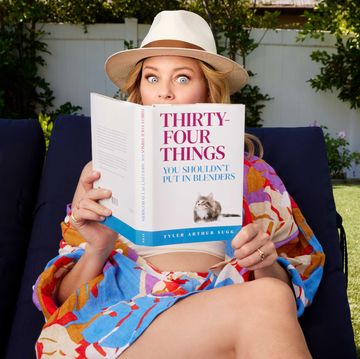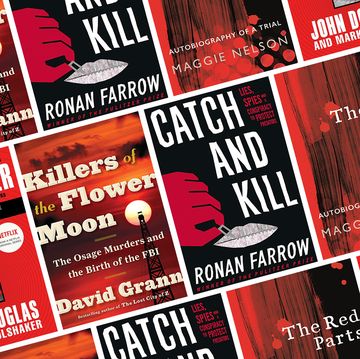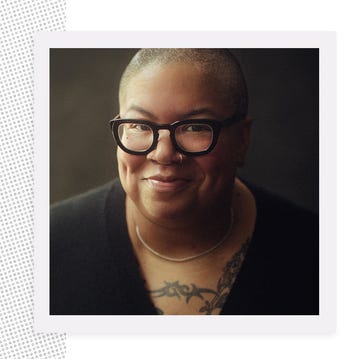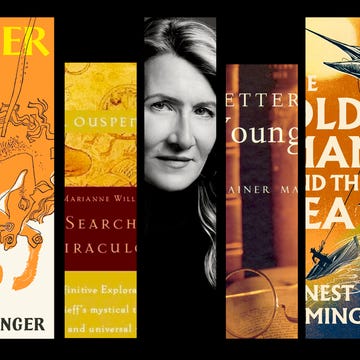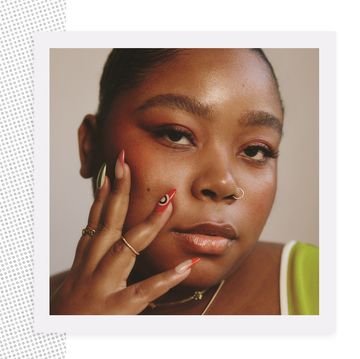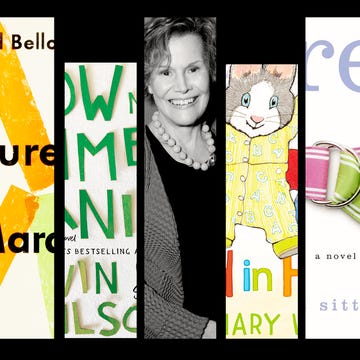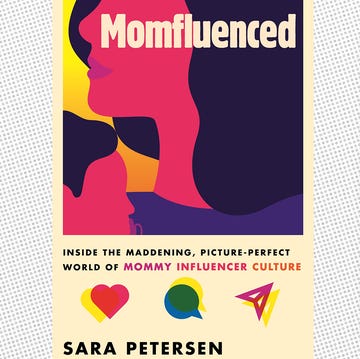Writers steal stories. We know this from pieces like “‘Cat Person’ and Me” and “Who Is the Bad Art Friend?” The fallout is undoubtedly a spectacle for our amusement, but the consequences of plagiarism prove dangerous and painful in R. F. Kuang’s biting satire Yellowface.
Following her wildly popular The Poppy War fantasy series and New York Times bestseller Babel, Kuang’s literary fiction debut strikes at the publishing industry. It’s a page-turner about two frenemies/aspiring writers who meet in their first year at Yale and end up in Washington, D.C. post-grad. Athena Liu lives near Dupont Circle, has published three best sellers, and grew up traveling across the world; June Hayward lives in Arlington, VA, her first and only book flopped, and she declares herself uninteresting because she believes that the industry is no longer invested in stories by white women. From June’s perspective, we witness her intense (and sometimes valid) jealousy, commitment to writing, and frustration with publishing. “Jealousy is constantly comparing myself to [Athena] and coming up short; is panicking that I’m not writing well enough or fast enough, that I am not, and never will be, enough,” Kuang writes.
While Athena is lauded as the next Amy Tan or Maxine Hong Kingston, June wonders why “some people rocket to stardom on their first try.” She recalls, “Six months before Athena’s debut novel came out, she got a big, sexy photo spread in a widely read publishing magazine under the title ‘Publishing’s Newest Prodigy Is Here to Tell the AAPI Stories We Need.’” Through June’s eyes, Athena is a token “diverse person” to whom success comes naturally.
More From ELLE

Luckily for June, Athena dies. Right in front of her eyes. She steals Athena’s latest unpublished project: The Last Front, a novel about Chinese laborers in World War I. You know, something she’s totally qualified to “write” about, if you define writing as reworking your deceased friend’s draft and publishing it as your own.
And June’s luck is abundant. She takes up the ethnically ambiguous moniker Juniper Song. Her agent and editors eat up her work. No one suspects a thing. She finally gets the respect she knows she deserves—more than Athena ever did. June pays her success forward to the Asian American Writers’ Collective, a parody of the Asian American Writers’ Workshop (where I have been a writer and moderator). She reminisces on how Athena made fun of young AAPI writers who reached out to her for mentorship and advice. Her stealing, she believes, is clearly justified.
It may be easy to compare Athena to Kuang, who published her first book at 22—days before graduating from Georgetown. Kuang is also a praised author with a big following, but without Athena’s stubbornness or pretentiousness. In fact, she worked with editors of color, both established and up-and-coming, on this book, and included their horror stories in the industry.
Kuang is currently a PhD candidate in East Asian Languages and Literatures at Yale, and holds master’s degrees in Chinese Studies from Cambridge and in Contemporary Chinese Studies from Oxford. Unlike June, she is someone most certainly qualified to tell this story.
Ahead of her book tour launch in New York, we spoke about tokenization, hostility, writing, ghosts, and side-eyeing.
This book had me yelling, as someone who has worked as a writer and in publishing. You nailed everything on the head here with how it works for AAPI women in these roles. Can you speak about your history with publishing?
I’m lucky in that I’ve been with the same publishing team since I started my career. Actually, when we went on submission, we didn’t even know if HarperCollins was going to want it because it's making fun of HarperCollins! But I did stay in-house and I am grateful because the more you work with people, the more trust you build. I ended up having such a fun time working on revisions on this manuscript with my editor, May Chen, who’s one of the few Asian American editors at an executive level in publishing, and Mireya Chiriboga from the Harper Voyager side. Getting all these perspectives and stories about what it’s like to be a woman of color in the industry fueled into the rage that Candice Lee [a bitter and vengeful Korean American editorial assistant at June’s publisher] has.
We’re conducting this interview in May, which is AAPI Heritage Month, which my friend has jokingly called “AAPI Tokenization Month.” This book feels like the ultimate “F you!” to that. Did you intend to have it released this month for that reason?
Obviously, it’s a really nice coincidence that it’s coming out during AAPI Heritage Month. I roll my eyes so hard at all the corporate messaging during May that’s like, “Here are five AAPI heritage books you should read!” It’s all so shallow and superficial, so it’s nice to have a book coming out during this month that tackles all of that very performative commitment to diversity in other cultures.
But that wasn’t the main reason why Yellowface is coming out. There are exactly two months of the year when I can go on tour between May and August because it’s the end of spring term and before the fall semester; otherwise, I’m not really available!
There’s a mythology surrounding Athena that’s made up by the publishing industry and June that I think many writers will impose on others with that amount of success. What was the process of producing this mythology?
I really wanted to play with having a character who dies very early on. You never really get Athena’s side of things. To have her reputation, image, and memories be so biased depending on who you’re talking to, you get vastly different versions of her. You’re never quite sure exactly who she was, which was really fun to play with and to think about through the framework of ghosts.
Athena is tricky because she is that token Asian American writer who has clearly struggled in dealing with that tokenized status. On the one hand, she wants to believe that she is where she is purely by merit and talent. She refuses to believe that structural barriers exist for anybody else. On the other hand, she’s aware that her position is so precarious. Her being the cultural broker, the only Chinese American in the room, makes her very hostile towards everybody else. I wrote in scenes in which younger writers mentioned that Athena never reached out to them or accepted their requests for mentorship or guidance. She’s very much a solitary figure who is focused on her own career and doesn’t want to bother with anybody else.
The biggest bummer in this book is how both June and Athena view writing as a magical solitary act and don’t find community in it at all.
On the most basic level, writing has to be a solitary activity. It’s just you and a blank page. Nobody else can get between that—you can’t live-Tweet your way out of writer's block and include everybody else in on the process. At some point, it’s just got to be you battling the words alone.
But that doesn’t mean that the life of a writer has to be solitary. And, in fact, I think writers really benefit from having a community that they can talk about the business with, that they can bounce ideas off of, that they can turn to each other for support and guidance. And the sad thing is that when Athena and June get into the industry, they view it all as a competition and a zero sum game. Anybody else’s success comes at a trade off with their own. In today’s literary environment, we’re primed to think of writing as competition because there’s so much messaging on social media that there is one correct script for how to become a best seller. And if you don’t adhere to those guidelines, you don't hit all of those milestones, you're failing somehow. I think in an age of Good Reads, Instagram, BookTok, Twitter, etc., there are so many metrics for you to compare your own career with somebody else’s. And that constant comparison, I think, has really exacerbated everyone’s sense of alienation and antagonism towards each other. And I think that's really sad. It's definitely the mindset that June and Athena have fallen into.
I think that if June lived in New York, her head would be exploding from jealousy constantly. Is this why you had the both of them not live at the epicenter of publishing?
I’ve never lived in New York. I did my undergrad in D.C., so I just know the city better. New York would be a dangerous place to set this novel because then there would be too many people to make fun of. And you’re right, June’s head would be exploding from jealousy. Every time she went to a reading or every time she walked into a coffee shop, she would meet somebody she hated. The New York literary scene terrifies me a bit. I’ve never been part of it and I don’t really know what it’s like, but I imagine it’s debilitating for somebody like June.
That distance from NYC does sound essential! June is one of the most unsympathetic narrators I’ve ever read. What other books or media did you look to, to write from that kind of POV?
I’m actually thinking a lot about contemporary psychological thrillers, especially female lead thrillers, like Gone Girl or The Woman in the Window—lots of books with “girl” in the title. A lot of them have deeply unsympathetic female narrators. It’s always this narrative of, “She’s kind of a bitch, like, she’s really mean.” And you find that you still really enjoyed listening to her because it feels kind of like going to the pub with the nastiest friends you don’t even like and listening to them rant about everybody who walks through the doors. I’m tinkering with what makes that voice so delicious and addictive, even though it’s not a personality that we would never want to spend time with.
Let’s talk about the Asian American Writers’ Collective. June sees it as an opportunity to pay it forward when she becomes successful, even though she’s taken away an opportunity from an Asian person; whereas Athena scoffs at it. Why is this the only made-up organization you included when you refer to so many other real ones?
That’s in part because I don’t know the Asian American Writers’ Workshop all that well. I wanted to make up an institution because it isn’t really a critique of anything or anyone. I’m interested in the problem of institutionalization. This is something that comes up again and again in conversation about Asian American literature in the academic field as well. When you do institutionalize something, when you create a canon, when you make it official, then you come into all these problems of representation, right? Like, who was the institution meant to benefit? What are the trade-offs? What sacrifices is the institution going to make, in exchange for things like funding or for influence? And there’s this funny scene where the Asian American Writers’ Collective, which is fictional, decides to work with June anyways because they’re happy with the size of her donation, even though they’re iffy about her as a figure.
June asks the question, “Who has the right to write about suffering?” and what follows is an anecdote about June witnessing Athena interviewing Korean war veterans at a Smithsonian exhibit to write a story about them. How do you answer that question?
That scene specifically is making fun of how Asian representation as a term usually becomes very blurry and slides over into all sorts of groups that don’t necessarily have anything to do with one another. So Athena, who is of the Chinese diaspora, gets read as an authentic voice about the Korean War, even though she isn’t Korean and none of her family has any relation to the Korean War.
I’m also interested in how it seems like a lot of AAPI writers are tortured with the problem of representing trauma and pain. Something a lot of people struggle with is, what is the ethical standard for one to write about something? When are you allowed to mind your own family’s history? Does it ever feel icky? Does it feel like you’re profiting off of your parents and your grandparents’ trauma? And I don’t think anybody really knows the answer. I think everyone should do the best they can to represent those experiences with integrity, care, and detail—all of which are not necessarily present in the way that June is approaching her work.
This is such a great cover. What was the process in choosing it? And whose eyes are those on the front?
Well, whose side-eye is it? I don’t really know. I have learned over the years that I’m not a designer, I don’t have that kind of artistic sensibility, so my contribution is looking at something and saying, “Oh, wow, that really works,” or, “Oh, I really don’t like that.” So I can’t really take the credit for that. That’s all the HarperCollins artistic team.
I do remember really struggling with choosing the book cover. Part of the reason why is because the title is already so provocative. Ultimately, I think the final title cover is hilarious and very smart because it does play with all sorts of stereotypes. I think the shape of Asian eyes is this trope that comes up over and over again. This suspicion, the accusation of inauthenticity, the trope of Asians being spies and perpetual foreigners—all of that has been provoked by that gaze.
I also really love just the sheer wash of yellow over the rest of the face. You don’t get any other facial features or distinguishing traits and I think that that’s a good visual metaphor for how race can function when it’s commodified and used as a reductive marketing label. It’s this flattening quality that erases every other part of a person that makes them complex, individual, and interesting.
This interview has been edited and condensed.
Ruth Minah Buchwald is a writer, comedian, and performer born in Seoul and raised in northern New Jersey. Her writing has appeared or is forthcoming in Autostraddle, CRAFT, Electric Literature, Los Angeles Review of Books, The Margins, and more. She curates and hosts lactose intolerant, a monthly reading series featuring writers of color in NYC. She received a BA in Critical and Visual Studies from Pratt Institute and lives in Brooklyn. Find her online at ruthminahbuchwald.com.




